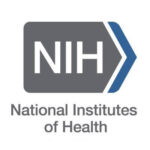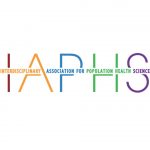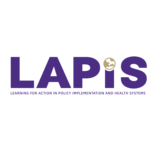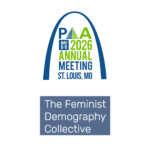Welcome Back to CSDE! Enjoy Lunch and Catch Up with Colleagues on Friday 9/26 @ 12:30pm!
|
Please join CSDE on Friday (9/26) at 12:30pm (Location: Between Raitt Hall and Savery Hall) to celebrate the start of the 2025-2026 Academic Year! Catch up with your colleagues, meet new affiliates, staff members, fellows, and trainees, and find out what is new and upcoming at CSDE. You’ll have a chance to pick up your own, newly redesigned Autumn Qtr Seminar Series Poster and enjoy food and refreshments. We want to send a huge shout-out to our CSDE Seminar Series Chair, Rawan Arar, for her amazing work putting together the Fall 2025 Quarter Seminar Series! Thank you for all your work and creating an amazing seminar series for all of us! AND, thank you to Maddie Farris for tackling a re-design of the seminar series poster! It looks great Maddie!
We have a few updates to our leadership, Anjum Hajat will serve as CSDE’s interim Development Core PI, while Steven Goodreau is on sabbatical. Anjum is faculty in the School of Public Health and studies social and environmental epidemiology. She brings a great deal of experience leading research grants and supporting early career researchers. CSDE is very lucky to rely on her outstanding expertise! Additionally, Zack Almquist’s outstanding research on homelessness is growing by leaps and bounds. Consequently, he has stepped aside as the Primary Research Area chair for Demographic Measures and Methods. Stepping into his place is Jon Wakefield. Jon is faculty in Statistics and Biostatistics and leads the Space-Time and Bayes Research Group.
Our seminar series this autumn quarter includes speakers covering the full array of population research topics. Leading off our speaker series on October 3 will be a panel presentation on Housing, Urban Development, and Displacement offered by CSDE Alum Tim Thomas (King Country Regional Homelessness Authority) and CSDE Trainee Will von Geldern (Evans School). On October 10, we’ll host another presentation about the region: A Portrait of the Unhoused Population of Seattle by Nathalie Williams, Hugo Aguas, Mingze Li, Yuanxi Li, Brandon Morande, Aryaa Rajouria, and Caroline Teague.
On October 17 we are especially honored to co-host with Sociology the Guest Lecture in honor of A. Pete Guest (former faculty member in Sociology and former editor of Demography). Giving the Guest Lecture will be Dr. Susan Brown, CSDE and Sociology alumna and former advisee of Pete’s. Susan’s talk is titled: From Human Ecology to Social Ties to Assimilation: The Legacy of Pete Guest.
Morgan Vickers (Law, Societies, and Justice) joins CSDE on October 24 to present on “Fit for Habitation only by the Negro”: Draining the Wretched Lowcountry Swamp, 1895-1915. On October 31, Sanyu Mojola (Princeton University) will present on her soon-to-be published book: Death by Design: Producing Racial Health Inequality in the Shadow of the Capitol.
The last three lectures of the autumn quarter will be given by new assistant professors. On November 7, Chia Liu (University of St Andrews) will speak on Growing up in the UK: Child Development in a Complex System. On November 14, José Alavez (Geography) will given a talk on Deep Mapping Grief and Loss in the Context of Migration. And, Hyungmin Cha (Sociology) will present on A Demographer’s View of Education and Dementia: Patterns, Predictability, and Persistence on November 21.
Last, but definitely not least, December 5 will be CSDE’s very enjoyable Lightning Talks and Poster Session. For those of you who are new, this is a great time to learn more about the research of our students and to mingle and talk with each other!
For those of you who are new to CSDE, be sure to sign up for our calendar of events and our weekly e-news. The former includes our workshops and weekly seminar series and the latter includes a host of updates about CSDE affiliates’ accomplishments and opportunities for grants, conferences, publications, new research resources, etc. Don’t forget to send your news to csde@uw.edu!
(read more)
|
 |
|
|
CSDE Science Core – Upcoming Workshops
|
Each quarter, CSDE offers 3-5 workshops on data sources, statistical and biomarker methodology, introductions to analysis programs, and more, all given by CSDE staff and faculty affiliates. These workshops can include hands-on training in novel methods and programming, lectures on innovative data sources, and discussions of important issues in research and data collection. Over the coming academic year, CSDE will offer a diverse and exciting set of workshops in a remote format. Students, faculty, staff, and our CSDE community members from outside the University of Washington are all welcome to register for our workshops. Zoom links will be provided upon registration.
You can find our workshop website and register for our Autumn 2025 workshops in the links below. Select read more to view the full Fall 2025 CSDE Workshop schedule. We will be filling in our schedule for Winter & Spring workshops soon, so stay tuned!
Please reach out to CSDE, if you have additional workshops you would like to see offered in the future and we will do our best to accommodate those requests.
Autumn Workshops
(read more)
|
 |
Call for Papers Available for PAA 2026 (Due 10/05/25)
|
The PAA 2026 Annual Meeting has announced its Call for Papers. The deadline for submissions is October 5. Sessions will be in-person at the America’s Center in St. Louis, Missouri, May 6 – 9, 2026.
Please note a few important items:
- All accepted presenters will be required to register for the conference by February 4, 2026.
- Individuals can only serve as a presenting author twice on the program (but can have additional roles such as chair or discussant).
- Organizers will not review papers from authors with whom they have a conflict of interest (close collaborators or current students/postdocs). As such, please do not submit your abstract to someone with whom you may have a conflict of interest.
- View the Call for Papers here.
(read more)
|
 |
Students conducting population research… consider submitting your research to PAA 2026
|
Attention Students, Trainees & Fellows! The Population Association of America (PAA) is a great opportunity to present your research. CSDE will help you prepare to submit your work for consideration. We will be facilitating our annual Extended Abstract Workshop ahead of the PAA 2026 submission deadline. This is a great opportunity to get feedback on your PAA abstract from CSDE staff scientists and faculty affiliates before you submit! You can sign up to participate here. CSDE Training Core PI, Audrey Dorelien, and CSDE Training Director, Jessica Godwin, will meet with you to discuss abstracts ahead of the submission deadline on Tuesday, September 30 @ 11:00AM–12:00PM on Zoom.
(read more)
|
 |
Webinar: Opportunities for Doing Social-Environmental Research with Little to No Funding (09/22/25)
|
WEBINAR: Opportunities for Doing Social-Environmental Research with Little to No Funding (Virtual Event)
When: Monday, September 22nd (9:00AM – 12:00PM ET / 6:00AM – 9:00AM PT)
Graduate students, post-docs, and early-career faculty engaged in social-environmental research face an unprecedented research landscape. Decreased federal research funding will constrain their ability to continue their personal research programs, from dissertations to faculty research plans. Low-cost primary data collection, re-analysis of secondary data, creative use of available datasets, meta-analysis of existing studies, and localized field work can all be potential solutions.
Register Here
(read more)
|
 |
*New* APDU Webinar – The State of Data Access II Presented by mySidewalk (09/25/25)
|
Thursday, September 25
2:00-3:00 pm ET / 1:00-2:00 pm CT)
Public data is foundational for good decisions—but that foundation is shifting.
From disappearing datasets to growing access gaps, communities are facing real challenges in finding timely, reliable information. But even in uncertainty, communities are finding ways to move forward.
Join public sector leaders and data experts for The State of Data Access II, a conversation about how we adapt, protect vital information, and build stronger systems for the future. In the conversation, we’ll explore:
- What’s driving today’s public data challenges.
- How communities are navigating uncertainty in collaborative, creative ways.
- Advice for strengthening resiliency in your own work and community.
Whether you're working to improve access, responding to data gaps, or simply rely on public data to make informed decisions—this conversation is for you.
Register here
(read more)
|
 |
Office on Violence Against Women Funding for the Research & Evaluation Initiative – Now Accepting Applications! (Due 09/25/25)
|
The Fiscal Year (FY) 2025 R&E Initiative NOFO is open! On behalf of the Department of Justice Office on Violence Against Women (OVW), we are reaching out with information you and your organization may be interested in regarding OVW’s Research and Evaluation (R&E) Initiative.
OVW’s R&E Initiative is designed to study approaches to addressing and preventing domestic violence, sexual assault, dating violence, and stalking. By studying the efficacy of strategies for serving victims and holding offenders accountable, the R&E Initiative helps communities assess their current programs and adopt proven strategies. The initiative is designed to support researcher-practitioner partnerships and a broad range of research and evaluation methods, including qualitative, mixed-method, quasi-experimental, and experimental designs.
- Application deadline for Grants.gov: September 23, 2025 – 11:59 p.m. ET
- Application deadline for JustGrants: September 25, 2025 – 8:59 p.m. ET
(read more)
|
 |
Virtual Lecture: Stefanie DeLuca on “Creating Moves to Opportunity: Mixed Methods Evidence on Barriers to Neighborhood Choice” (09/25/25)
|
Creating Moves to Opportunity: Mixed Methods Evidence on Barriers to Neighborhood Choice - A talk by: Stefanie DeLuca, Johns Hopkins University
Thursday, September 25, 2025 - 3:00 – 4:00 p.m. Eastern, via Zoom
Low-income families often live in neighborhoods with fewer opportunities to get ahead, even when they have housing vouchers that would allow them to move to neighborhoods with more potential for upward mobility. In this SSRC lecture, Johns Hopkins sociologist Stefanie DeLuca will explore why through two randomized interventions. In these experiments, housing voucher recipients were given varying levels of information, financial support, and customized search assistance to move to higher-opportunity neighborhoods.
(read more)
|
 |
*New* Spotlight Speaker Series with Tyler Bruefach, PhD: Actionable Data Science & Creative Solutions in Public Health (September 26th at 2 PM EDT)
|
Speaker: Tyler Bruefach, PhD (Data Scientist, Knowli Data Science)
Moderator: Rachael Dominguez, MS (PhD Candidate, Florida State University)
Tyler Bruefach, PhD, is a Data Scientist at Knowli Data Science, where his central goal is to improve how we use data to better inform organizational and policy decisions. Using a diverse array of quantitative methodologies, he has worked with administrative data from three state agencies across three different states to support their decision-making processes. At Knowli, he engages in a variety of approaches tailored to clients’ needs, including developing descriptive and weighted algorithms from large-scale datasets, dynamic dashboard development, mixed-method program evaluations, inferential analyses using multivariable regression models, and development to quasi-experimental designs to evaluate the health and cost savings of public health interventions. He has collaborated with a diverse set of organizations, including government agencies on the local and state level, hospital systems, and local nonprofits.
Register for the session here
(read more)
|
 |
*New* Max Planck Institute for Demographic Research – Open Course on Topics in Digital and Computational Demography (Application Deadline 09/28/25)
|
Topics in Digital and Computational Demography
-
- Date: 3-7 November 2025
- Coordinator: Risto Conte Keivabu
- Instructors: Boris Barron, Irena Chen, Carolina Coimbra Vieira, Risto Conte Keivabu, Jordan Klein, Ebru Sanlitürk, Benjamin-Samuel Schlueter, Tom Theile, Emilio Zagheni
- Application deadline: 28 September 2025
The Max Planck Institute for Demographic Research (MPIDR) is offering a new edition of its open course on Topics in Digital and Computational Demography (3-7 November 2025) and encourages qualified candidates to apply. For more information and application instructions, please see the detailed course description.
To apply, please complete this form.
(read more)
|
 |
Royalty Research Fund Proposals Due September 29th
|
The Office of Research invites applications for the next round of the Royalty Research Fund (RRF) grant program. Proposals are due to RRF Monday, September 29, by 5:00 PM. Departments and Colleges/Schools may have earlier deadlines, so all applicants are advised to check with their program’s administrative staff. Awards will be announced by January 15, 2026.
The purpose of the RRF is to advance new directions in faculty research and contribute in substantive ways to the health, creativity, and productivity of the research ecosystem as defined by the University’s Vision Statement: “We discover timely solutions to the world’s most complex problems and enrich the lives of people throughout our community, the state of Washington, the nation, and the world."
The RRF received a Public Records Request in June. The RRF team is responding to the request following UW guidelines. RRF Website.
(read more)
|
 |
CACHE – Virtual Center for Aging, Climate and Health Invites Participation and Contributions
Corporate & Foundation Opportunities: Russell Sage Foundation Pipeline Grants Competition (10/1/2025)
|
Pipeline Grants Competition
Organization: Russell Sage Foundation
Award amount: $50,000
Deadline: 10/1/2025
Description: This initiative will support early-career scholars and promote diversity in the social sciences, including racial, ethnic, gender, disciplinary, institutional, and geographic diversity. Pipeline grantees are paired with mentors who offer advice on their projects and career development. The competition funds innovative research on economic mobility and access to opportunity in the United States. We are particularly interested in research focused on structural barriers to economic mobility and how individuals, communities and state entities understand, navigate and challenge systemic inequalities. Early-career faculty who have not previously received research grants (not counting a dissertation grant) or a visiting fellowship from RSF are eligible to apply.
(read more)
|
 |
NIH Research on Addressing Violence to Improve Health Outcomes (10/05/2025)
|
The purpose of this Notice is to highlight interest in addressing the role of violence in health outcomes and integrating violence-related screening and interventions into health care settings. This Notice is to encourage intervention research focused on addressing exposure to violence – including but not limited to child maltreatment, intimate partner violence/teen dating violence, elder mistreatment, peer violence/bullying, and community violence – to improve individual-level health processes and outcomes. Read more here.
(read more)
|
 |
*New* Upcoming IAPHS Webinar: “Rethinking ‘Race’ to Reconstruct Research Practices: Introducing Population-Conscious Analysis” (10/06/25)
|
October 06, 2025, 3:00PM – 4:15PM EDT
Race/ethnicity is commonly used as a predictor variable in biomedical research. This practice can perpetuate inequities when race/ethnicity and other social-identity categories are treated as fixed characteristics rather than as proxies for the social, environmental, and structural factors that produce unjust group differences in health outcomes. Join the Center and IAPHS for a webinar on Oct. 6 at 3 p.m. ET to learn about a novel research method which systematically assesses this critical factor, shifting the focus from describing health differences between social groups to understanding the mechanisms that produce those differences.
Register Here
(read more)
|
 |
*New* LAPIS Seminar: The Challenges of Behavior Change – Per Nilsen (10/06/25)
|
The Challenges of Behavior Change
- Per Nilsen, Professor, Linköping University, Sweden
Per Nilsen is a Professor of Social Medicine and Public Health at Linköping University, Sweden. An economist by training at Stockholm School of Economics, Sweden, Nilsen was responsible for building a research and educational program on implementation science at Linköping University, including a PhD course which is running annually since 2011. He takes particular interest in applying concepts and theories from beyond implementation science for improved understanding of the challenges involved in achieving behaviour and practice change. His paper “Making Sense of Implementation Theories, Models and Frameworks”, published in Implementation Science, has been cited in nearly 5,000 publications. Nilsen has broad interests and has also authored books on rock artists like Prince, David Bowie and Iggy and the Stooges. Visit this link to learn more about the event.
(read more)
|
 |
Feminist Demographers Sponsor PAA Session – Please Submit your Proposal
|
Feminist Demography has a special session on the upcoming program for the PAA titled: Heterodox, Feminist, and Critical Perspectives on Demography.” The session #917 can be found in the Call for Papers. This brand new session provides an opportunity for critical scholars of and in population studies to contribute their knowledge at our field’s flagship annual meeting. To learn a bit more about what feminist demography is and how you can contribute to this emerging subfield, please visit their website at feministdemography.org.
(read more)
|
 |
*New* Register Now: CUGH Virtual Symposium on the Triple Environmental Crisis (Oct. 14)
|
Addressing the Triple Environmental Crisis: A Way Forward
- October 14th, 2025, 10:00am – 1:00pm PT / 1:00pm – 4:00pm ET
Join the Consortium of Universities for Global Health for this engaging symposium where they will exchange ideas and explore solutions to combat the pressing challenges of climate change, pollution, and biodiversity loss, which pose significant risks to our health and security. Register here and visit their website for more information.
(read more)
|
 |
Berlin Demography Days 2025: Demography and Democracy (10/27/25 – 10/28/25)
|
Save the date: 27 and 28 October 2025
The electoral successes of anti-democratic movements cannot be explained solely by the demographic or socio-economic characteristics of individual groups. More decisive are local perceptions of problems and narratives of loss in the context of demographic change. These manifest in a perceived political overload, blame and the supposed failure of ‘established’ politics.
Together with experts from academia, political foundations, and governments, we analyse these demographic trends and discuss practical solutions at the regional and local level. We look forward to welcoming you to this event.
Register here
(read more)
|
 |
*New* CIFAR Azrieli Global Scholars Program – Canadian Institute for Advanced Research (11/05/25)
IPUMS: Caregiving Workshop at GSA (11/12/25)
|
Understanding and addressing the misalignment of care demands between an aging
population and a shortage of healthcare workers in the US requires research-ready data to study caregiving. Join IPUMS and NDIRA the morning of Wednesday, November 12 for a GSA workshop: Population Data for Studying Formal and Informal Caregiving.
- Overview of IPUMS data that are relevant to caregiving
- Demonstrations of features to streamline data management
- Discussions about analytical considerations
- Review of non-caregiving topical coverage in these data
- Guidance on identifying informal caregivers
Please register to join us or circulate this opportunity with your networks. The early bird registration rate for GSA expires on September 3.
(read more)
|
 |
Call for Submissions to Discover Global Society – Permutations of Caring (due 12/31/25)
|
Discover Global Society (Springer Nature) is currently welcoming submissions of original research to the “The Permutations of “Caring”: On the Individual, Family, and Societies” Collection, Guest Edited by Prof. JosAnn Cutajar (University of Malta, Malta).
Discover Global Society was launched by Springer Nature in 2023 and indexed in SCOPUS (CiteScore 0.4 [2024]). Discover Global Society is a fully open-access journal, which means that its contents are freely available and can be used by a world audience.
If you are interested in preparing a manuscript for consideration at Discover Global Society as part of this Collection, submissions will be welcomed at any point up until 31 December 2025, but if you are unable to submit a manuscript before this date, please let us know as we may be able to be flexible.
(read more)
|
 |
*New* Center for Aging, Climate, and Health (CACHE) September 2025 Newsletter
|
CACHE facilitates research and fosters collaboration among a wide-range of researchers working at the nexus of aging, health and climate change through targeted interdisciplinary training, information sharing, and investments in research support. To view their September 2025 Newsletter that contains upcoming CACHE Seminars, Call for Papers, CACHE Seminar Recordings, and more, follow this link: CACHE September Newsletter.
(read more)
|
 |
*New* Finding NASA’s data from Socioeconomic Data and Applications Center (SEDAC) – moved to Harvard
|
(SEDAC) – moved to Harvard
Data from the NASA Socioeconomic Data and Applications Center (SEDAC) along with other recent data releases are now available through a special CIESIN subcollection of the CAFE collection on the Harvard Dataverse. CAFE is the Research Coordinating Center for Health and Extreme Weather, based at Boston University School of Public Health and Harvard T.H. Chan School of Public Health. The spatial data produced or curated by SEDAC were specifically intended to facilitate integration with gridded Earth science data, in particular data from NASA’s constellation of remote sensing instruments. SEDAC was managed by CIESIN from 1998-2025.
(read more)
|
 |
*New* Latest Issue of Population and Development Review Published
*New* Volunteer Researchers Needed for Community-Based Participatory Research
|
Volunteer researchers needed for community-based participatory research
Dr. Melanie Martin is looking for a graduate student collaborator(s) to help with a year-long community-based participatory research project based in a local Lake City elementary school to study the impacts of culturally sustaining and asset-based pedagogical approaches in early education. Copied below is a brief description of the school and project aims below. Dr. Martin is looking for graduate student collaborators who would benefit from research participation in one or more of the following areas:
(read more)
|
 |
*New* IPUMS New Geographic Data
|
IPUMS IHGIS released data tables and GIS boundary files for an extended time series of the Population and Housing Census for Ireland covering five censuses: 1966, 1971, 1979, 1981, and 1986. We also released data tables and boundary files for the Chad 2009, Jordan 2015, and Zambia 2000 Population and Housing Censuses.
IPUMS CPS has created three new variables: PLACECENSUS and PLACEFFIPS report Census codes for central/principal cities in selected metropolitan areas, and MULTGEN helps identify the number of distinct generations contained within each household. We have also integrated additional variables for the Tobacco Use supplement, including variables on e-cigarette use, and additional variables from the Veterans supplement.
NHGIS geographic crosswalks are now available for six more levels: places, county subdivisions, ZIP Code Tabulation Areas (ZCTAs), metropolitan & micropolitan statistical areas, urban areas, and Public Use Microdata Areas (PUMAs). The new crosswalks provide interpolation weights to allocate data from one year's census blocks to one of these six unit types as defined in a different year (1990 to 2010, 2000 to 2010, 2020 to 2010, or 2010 to 2020
(read more)
|
 |
Social Sciences Research Council: Economic Research Rescue Fund (Rolling)
|
Program Description: The National Science Foundation (NSF) is dramatically reducing its vital support for scientific research. Principal Investigators who were conducting or facilitating economic research under a grant terminated by NSF can now apply for rescue funds to mitigate disruptions of work that promises to provide significant societal benefits.
(read more)
|
 |
Data Resource: Dewey Data
|
Dewey Data is a research platform that provides access to third-party datasets across a variety of data categories including foot traffic, construction permits, healthcare, workforce, consumer behavior, and transportation.
University of Washington faculty, students, and researchers are eligible for access and must register an individual account. Follow this link to learn about how to register.
(read more)
|
 |
Sign up to join the Early Career listserv!
|
We invite early career faculty affiliates to join our new mailing list, csde_earlycareer. Among other things, this is the way to find out info about our quarterly Early Career Affiliate happy hours, and you won’t want to miss those! These will be a great way to meet up with other junior scholars in a fun and casual atmosphere over snacks and drinks. Who counts as early career, you ask? Typically we mean folks who are pre-promotion (i.e. assistant professor or equivalent), but we're not strict! Join the list here (Please note - this is for faculty only - we are strict about that. Sorry, all others!)
(read more)
|
 |
|
|

